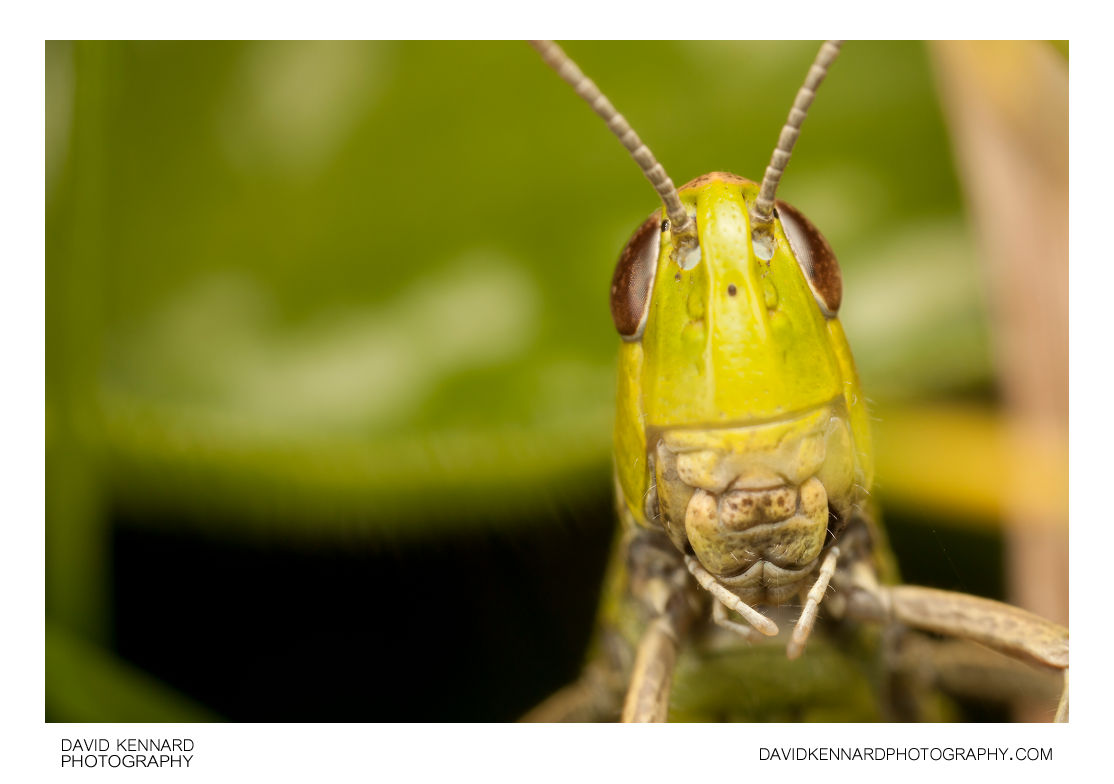Meadow Grasshopper (Chorthippus parallelus parallelus)

Description
- Title:
- Meadow Grasshopper (Chorthippus parallelus parallelus)
- Caption / Description:
-
Chorthippus parallelus, the meadow grasshopper, is a common species of grasshopper found in non-arid grasslands throughout the well vegetated areas of Europe and some adjoining areas of Asia. It is a well-studied organism in the discipline of Evolutionary biology and was an early and important model system for the study of European phylogeography.
The range of the Meadow Grasshopper extends from the Atlantic coast of Europe to the Urals. It is found from Scandinavia in the north to southern Spain and Anatolia in the south. It prefers moist vegetation and in southern regions is typically found in river valleys and at altitude (up to approx 2000m), not being found in arid areas.
Females grow to approximately 2cm and are larger and less active than males that grow to approximately 1.5cm. Both sexes are flightless. In females the wing cases (covering vestigial wings) extend only a short way down the abdomen while males have longer wing cases extending to almost the tip of the abdomen. They can be variable in colour with green, brownish, purple-red and pink forms recorded, although green forms are most common. Colour forms are genetically determined and some populations can show high frequency of pink grasshoppers.
Chorthippus parallelus is told from similar species by the approximately parallel nature of the the bars (pronotal side-keels) on the back of the neck which gives the species its name.
Description taken from Wikipedia: http://en.wikipedia.org/wiki/Chorthippus_parallelus
- Tags / Keywords:
-
- Biota
- Life
- Vitae
- Eukaryota
- Animalia
- Animals
- Arthropoda
- Arthropods
- Insecta
- Insects
- Chorthippus parallelus parallelus
- Orthoptera
- Grasshoppers
- Acrididae
- Acridid Grasshoppers
- Chorthippus
- Chorthippus parallelus
- Meadow grasshopper
Admin
- Date Original Photo Taken:
- Original File Name:
- _MG_4593.CR2
- Event:
- Rating:
- Date this image added/last updated on website:
- Original File Dimensions:
- 4272px x 2848px
- File Type:
- JPEG
- Color Mode:
- RGB
- Original Image Color Profile:
- Adobe RGB (1998)
Location
- Location Created:
-
- Sublocation:
- City:
- Market Harborough
- Province/State:
- Leicestershire
- Country:
- United Kingdom
- World Region:
- Europe
- Geo-location:
Rights
- Copyright Status:
- Copyrighted
- Licensing Status:
- Rights Managed
- Available for Editorial Use:
- Yes
- Available for Commercial Use:
- Yes
- Copyright Notice:
- © 2010 Dave Kennard
Camera Data
- Date Digital Resource was created:
- Shutter speed:
- 1⁄200 s
- Aperture:
- f/8
- Camera Model:
- Canon EOS 450D
- ISO:
- 100
- Exposure Compensation:
- 0
- Focal Length:
- 65mm
- Focal Length (35mm equiv.):
- Metering Mode:
- Multi-segment
- Flash:
- On, Fired
- Exposure Mode:
- Manual
- White Balance:
- Manual
- Light Source:
- Exposure Program:
- Manual
Additional shooting metadata
- Lens:
- Canon MP-E 65mm F2.8 1-5x Macro
- Filters used:
- Additional Optics used:
- Setup:
- Handheld
Canon MT-24EX Macro Twin Flash with home-made concave diffusers
Post Processing
- Image Modified:
- Software used:
-
- Adobe Camera RAW
- Post Processing:
-0.35 exposure compensation in ACR
